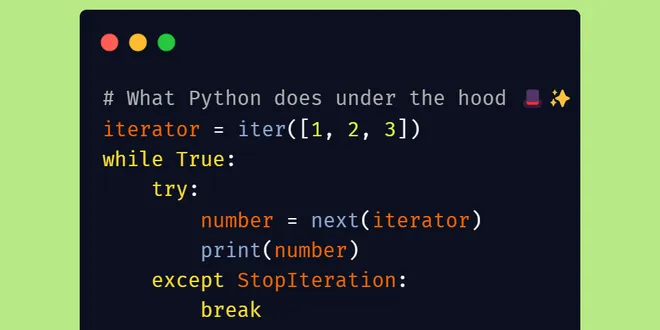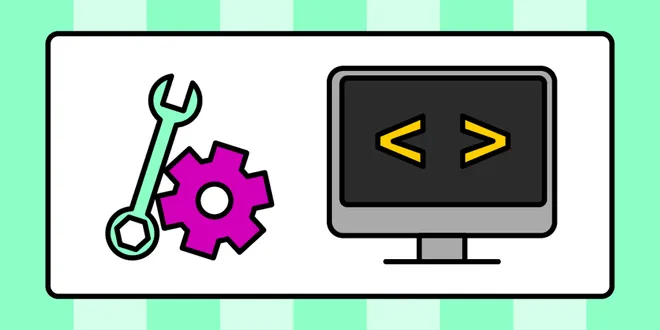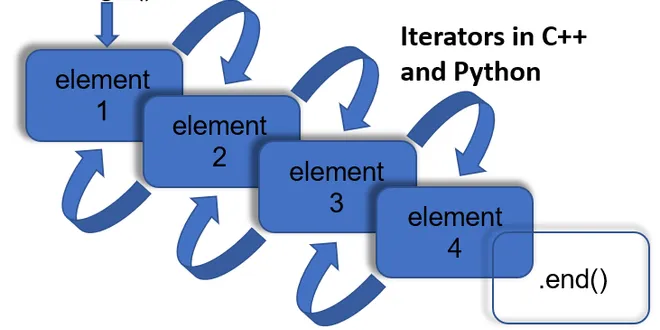Iterators&Enhanced for loop

Using the raw iterator
While using the foreach loop (or “extended for loop”) is simple, it’s sometimes beneficial to use the iterator directly. For example, if you want to output a bunch of comma-separated values, but don’t...
📚 Read more at Essential Java🔎 Find similar documents

Iterators Explained: The Magic Behind Your For Loops
Ever wondered what really happens when you write a for loop? Or why some objects work with loops while others don't? Let me share a story. I was pair programming with a colleague when they asked, “Why...
📚 Read more at Python in Plain English🔎 Find similar documents

Iterators & Generators
5. Iterators & Generators 5.1. Iterators We use for statement for looping over a list. for i in [ 1 , 2 , 3 , 4 ]: ... print ( i ) ... 1 2 3 4 If we use it with a string, it loops over its charac...
📚 Read more at Python Practice Book🔎 Find similar documents

Creating your own Iterable structure for use with Iterator or for-each loop.
To ensure that our collection can be iterated using iterator or for-each loop, we have to take care of following steps: The stuff we want to iterate upon has to be Iterable and expose iterator() . Des...
📚 Read more at Essential Java🔎 Find similar documents

Using Iterable in for loop
Classes implementing Iterable< interface can be used in for loops. This is actually only syntactic sugar for getting an iterator from the object and using it to get all elements sequentially; it makes...
📚 Read more at Essential Java🔎 Find similar documents

For Each
With Java 5 and up, one can use for-each loops, also known as enhanced for-loops: List strings = new ArrayList(); strings.add("This"); strings.add("is"); strings.add("a for-each loop"); for (String st...
📚 Read more at Essential Java🔎 Find similar documents

Iterator and Iterable
Versions [{“Name”:“Java SE 1.2”,“GroupName”:null},{“Name”:“Java SE 1.3”,“GroupName”:null},{“Name”:“Java SE 1.4”,“GroupName”:null},{“Name”:“Java SE 5”,“GroupName”:null},{“Name”:“Java SE 6”,“GroupName”:...
📚 Read more at Essential Java🔎 Find similar documents

Advanced Iterators
Just as regular expressions put strings on steroids, the itertools module puts iterators on steroids. But first, I want to show you a classic puzzle. Puzzles like this are called cryptarithms or alpha...
📚 Read more at Dive into Python 3🔎 Find similar documents

Exploring Asynchronous Iterators and Iterables: a Basic Example, aiter and anext
Download your free Python Cheat Sheet here: https://realpython.com/cheatsheet Free Python Skill Test with instant level + learning plan: https://realpython.com/skill-test Want to learn faster? Become ...
📚 Read more at Real Python🔎 Find similar documents

Python for Loops Are Just the Surface. Let’s Talk Iterators.
I wrote my first for loop over 30 years ago — maybe in BASIC, C, or Pascal. I was in grade 7 or 8, and just getting access to a computer felt like a privilege. Looping through numbers with a few lines...
📚 Read more at Python in Plain English🔎 Find similar documents

A gentle introduction to iterators in C++ and Python
Iterators are an incredibly useful programming paradigm for programmers of all levels and disciplines, including data scientists seeking to implement efficient data processing pipelines. Even if you…
📚 Read more at Towards Data Science🔎 Find similar documents

Advanced Python Looping Concepts with the Itertools Module
The itertools module in Python is a powerful tool that provides a collection of efficient and memory-friendly iterator building blocks. These tools can be used to construct specialized iterators that ...
📚 Read more at Python in Plain English🔎 Find similar documents


